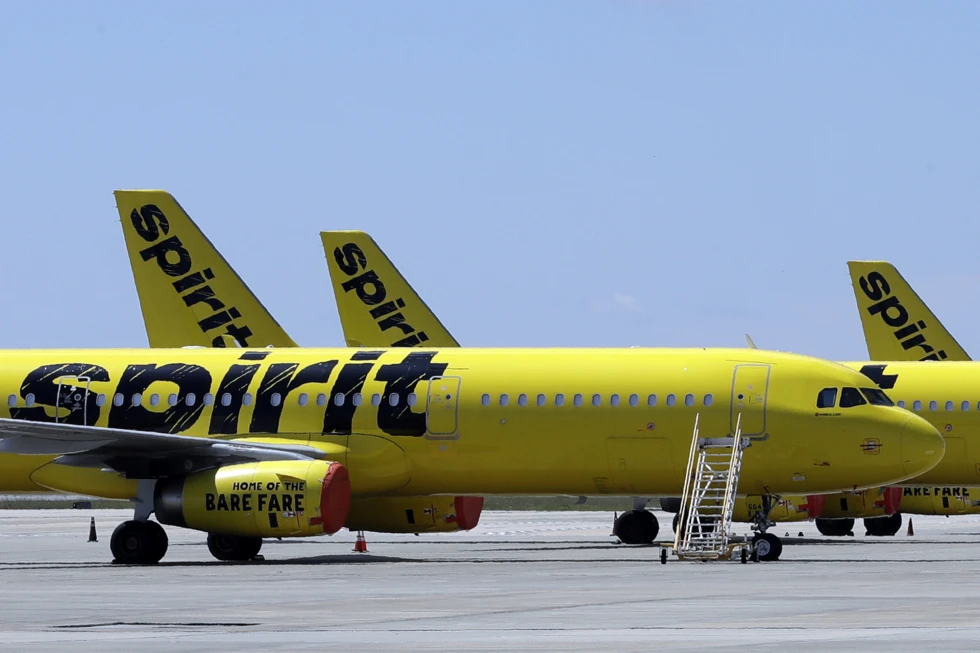The recent incident involving a 6-year-old boy who was mistakenly placed on the wrong flight, resulting in his arrival 160 miles away from his intended destination, has sparked widespread concern and raised pertinent questions about airline safety protocols and the responsibilities of carriers in ensuring the well-being of their passengers.
The distressing experience faced by the young boy and his family not only highlights the potential risks associated with air travel but also underscores the need for stringent measures to prevent such mishaps in the future.
This essay aims to delve into the details of this unfortunate event, analyze the implications, and propose viable solutions to prevent similar occurrences.
On the eve of Christmas, a grandmother eagerly awaited the arrival of her grandson at the Southwest Florida International Airport in Fort Myers, only to be informed that the young boy was not on the expected flight.
The boy, who was traveling alone for the first time from Philadelphia to visit his grandmother, was inadvertently placed on the wrong plane and subsequently landed in Orlando, Florida, far from his intended destination.
The distress and panic experienced by the family, particularly the grandmother, Maria Ramos, as she frantically sought answers from airline personnel, underscores the emotional toll and the potential dangers associated with such a grave oversight.
The account narrated by Maria Ramos, detailing her desperate plea to the flight attendant for information about her missing grandson, paints a harrowing picture of the confusion and despair that ensued.
The anguish of not knowing the whereabouts and safety of a young child entrusted to the care of airline staff is a distressing reality that should never be encountered by any family.
The repercussions of such an error extend beyond inconvenience, encompassing emotional trauma and the erosion of trust in the airline’s ability to safeguard its passengers.
The incident in question raises significant concerns regarding the efficacy of the airline’s procedures for unaccompanied minors and the communication protocols between airline personnel at different stages of the journey.
The potential consequences of such oversights are profound, encompassing not only the physical safety of the passengers but also the psychological well-being of those affected.
The emotional distress experienced by the child, separated from his intended destination and family, and the anguish of the grandmother, grappling with uncertainty and fear, underscores the magnitude of the incident’s impact.
Moreover, the incident brings to the fore the broader issue of accountability and the obligations of airlines to ensure the meticulous handling of passengers, particularly vulnerable individuals such as unaccompanied minors.
The trust placed in airlines to fulfill their duty of care is sacrosanct, and any breach of this trust not only jeopardizes the safety and security of passengers but also erodes the confidence of the public in the aviation industry as a whole.
The aftermath of this incident necessitates a thorough examination of existing safety protocols, communication channels, and training procedures to mitigate the likelihood of similar occurrences in the future.
In light of the distressing episode involving the misplacement of the 6-year-old boy, it is imperative for airlines to reevaluate and fortify their existing protocols for handling unaccompanied minors.
This entails a comprehensive review of the procedures for verifying the identity and intended destination of young passengers at every stage of their journey, from check-in to boarding and disembarkation.
Additionally, enhanced training programs for airline personnel, emphasizing the critical importance of accurate communication and meticulous oversight, are essential to mitigate the risks of errors in passenger handling.
Furthermore, the implementation of robust technological solutions, such as advanced tracking systems and digital identification verification, can serve as effective safeguards against the inadvertent placement of passengers on incorrect flights.
These technological interventions, when integrated seamlessly into existing operational frameworks, can significantly reduce the likelihood of human errors and enhance the overall safety and reliability of air travel, particularly for vulnerable passenger demographics.
In parallel, transparent and empathetic communication with affected passengers and their families in the event of such mishaps is paramount.
Airlines must prioritize the provision of timely and accurate updates, coupled with compassionate support, to mitigate the distress experienced by those impacted by unforeseen incidents.
This proactive approach not only demonstrates a commitment to passenger welfare but also cultivates trust and confidence in the airline’s commitment to rectifying errors and prioritizing the well-being of its passengers.
The mishap involving the misplacement of a 6-year-old boy on a flight to visit his grandmother in southwest Florida serves as a poignant reminder of the profound responsibilities entrusted to airlines in ensuring the safety and well-being of their passengers.
The emotional turmoil experienced by the affected family underscores the imperative for stringent measures to prevent such distressing occurrences in the future.
By reevaluating and fortifying safety protocols, enhancing training initiatives, and embracing technological innovations, airlines can reaffirm their commitment to the highest standards of passenger care and restore public confidence in the reliability of air travel.
The imperative for accountability and the preservation of trust between airlines and their passengers necessitates a concerted effort to rectify systemic vulnerabilities and uphold the sanctity of the passenger experience.
In conclusion, the incident at hand serves as a catalyst for introspection and reform within the aviation industry, compelling stakeholders to prioritize the safety and well-being of passengers above all else.
Through proactive measures and a steadfast commitment to excellence, airlines can mitigate the risks of similar mishaps and uphold their duty of care to passengers, thereby fostering a culture of safety, trust, and reliability in air travel.
The recent incident involving the incorrect boarding of a young boy on a Spirit Airlines flight to Orlando has sparked widespread concern and raised questions about the safety and responsibility of airlines in ensuring the well-being of their passengers, especially minors.
The incident, which garnered significant media attention, has prompted the airline to issue a statement expressing regret and promising to conduct an internal investigation.
This essay aims to delve into the complexities of this case, examine the implications of the incident, and explore the broader issues related to airline safety and responsibility.
The incident in question unfolded when a grandmother received a call from her grandson, who had just landed at the airport in Orlando.
To her shock, the boy informed her that he had been incorrectly boarded on a flight to Orlando. This alarming turn of events immediately raised concerns about the airline’s adherence to safety protocols and its responsibility towards its passengers, particularly young travelers.
In response to the incident, Spirit Airlines released a statement acknowledging the error and assuring the public that the boy was under the care and supervision of an airline employee throughout the entire duration of the flight.
Furthermore, the airline promptly notified the family once the mistake was discovered and expressed regret for the distressing experience.
The statement also emphasized the airline’s commitment to conducting an internal investigation and extended an apology to the affected family.
The incident involving the incorrect boarding of the young boy on a flight to Orlando has sparked a range of concerns and implications that warrant careful consideration.
Firstly, the safety and well-being of passengers, especially minors, have been called into question. The incident raises doubts about the effectiveness of the airline’s procedures for verifying passenger identities and ensuring that individuals are correctly boarded onto their designated flights.
Furthermore, the incident has highlighted the potential risks and vulnerabilities faced by unaccompanied minors and the need for heightened vigilance and stringent protocols to safeguard their welfare.
Moreover, the incident has underscored the critical importance of effective communication and transparency between airlines and passengers.
The fact that the family was only informed of the mistake after the boy had already landed in Orlando reflects a breakdown in communication and a lack of timely notification, which could have exacerbated the distress experienced by the family.
This raises broader concerns about the accountability and responsiveness of airlines in promptly addressing and rectifying errors that impact their passengers.
The incident involving Spirit Airlines serves as a microcosm of broader issues related to airline safety and responsibility.
It underscores the imperative for airlines to prioritize the safety and well-being of their passengers above all else. This necessitates the implementation of robust systems and stringent protocols to prevent errors such as incorrect boarding from occurring.
Additionally, airlines must demonstrate a commitment to transparency, accountability, and effective communication with passengers, particularly in the event of unforeseen incidents or errors.

Furthermore, the incident underscores the significance of conducting thorough internal investigations and implementing corrective measures to prevent similar occurrences in the future.
Airlines bear a fundamental responsibility to learn from such incidents and proactively enhance their operational processes to minimize the likelihood of errors and prioritize passenger safety.
The incident involving the incorrect boarding of a young boy on a Spirit Airlines flight to Orlando has sparked widespread concern and raised pertinent questions about airline safety and responsibility.
It serves as a poignant reminder of the critical need for airlines to uphold the highest standards of safety, accountability, and communication to ensure the well-being of their passengers.
As the airline conducts its internal investigation and takes steps to address the incident, it is imperative for the industry as a whole to reflect on the implications of this case and work towards implementing measures that prioritize passenger safety and responsibility.
Ultimately, the incident should serve as a catalyst for positive change within the airline industry, reinforcing the commitment to safeguarding the welfare of all passengers, especially the most vulnerable among them.
